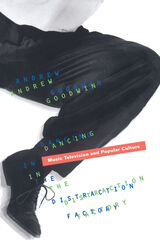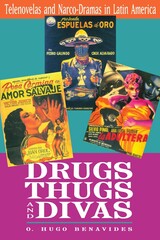5 start with D start with D


Standing at the crossroads of folklore, media, and performance studies, Arzu Öztürkmen explores the rise of the dizi genre in Turkey since the 1970s, when national television broadcasting began in the country. The Delight of Turkish Dizi approaches this unique genre—not quite soap opera or telenovela—as an art form that developed with the collective creative input of writers, producers, directors, actors, editors, musicians, and, lately, international distributors. Öztürkmen shows how dizi-making is a marathon run by sprinters, where production and broadcasting processes have been tightly interwoven, offering a mode of communication and consumption that is distinct to the Turkish television industry. The research consists of oral history with key figures in dizi production and ethnographic surveys of film sets, international content markets, and award ceremonies. This first-ever monograph on Turkish dizi will be a valuable addition to the field of performance and media studies while delighting the general reader as well.

As part of its effort to forge a new secular Jewish nation, the nascent Israeli state tried to limit Jewish religiosity. However, with the steady growth of the ultraorthodox community and the expansion of the settler community, Israeli society is becoming increasingly religious. Although the arrival of religious discourse in Israeli politics has long been noticed, its cultural development has rarely been addressed. Directed by God explores how the country’s popular media, principally film and television, reflect this transformation. In doing so, it examines the changing nature of Zionism and the place of Judaism within it.
Once the purview of secular culture, Israel’s media initially promoted alternatives to traditional religious expression; however, using films such as Kadosh, Waltz with Bashir, and Eyes Wide Open, Yaron Peleg shows how Israel’s contemporary film and television programs have been shaped by new religious trends and how secular Israeli culture has processed and reflected on its religious heritage. He investigates how shifting cinematic visions of Jewish masculinity and gender track transformations in the nation’s religious discourse. Moving beyond the secular/religious divide, Directed by God explores changing film and television representations of different Jewish religious groups, assessing what these representations may mean for the future of Israeli society.

Doctor Who is the longest running science fiction television series in the world and is regularly watched by millions of people across the globe. While its scores of fans adore the show with cult-like devotion, the fan-contributors to this book argue that there is an uncharted dimension to Doctor Who. Bringing together diverse perspectives on race and its representation in Doctor Who, this anthology offers new understandings of the cultural significance of race in the programme – how the show’s representations of racial diversity, colonialism, nationalism and racism affect our daily lives and change the way we relate to each other.
An accessible introduction to critical race theory, postcolonial studies and other race-related academic fields, the 23 contributors deftly combine examples of the popular cultural icon and personal reflections to provide an analysis that is at once approachable but also filled with the intellectual rigor of academic critique.

Soap opera speaks a universal language, presenting characters and plots that resonate far beyond the culture that creates them. Latin American soap operas—telenovelas—have found enthusiastic audiences throughout the Americas and Europe, as well as in Egypt, Russia, and China, while Mexican narco-dramas have become highly popular among Latinos in the United States. In this first comprehensive analysis of telenovelas and narco-dramas, Hugo Benavides assesses the dynamic role of melodrama in creating meaningful cultural images to explain why these genres have become so successful while more elite cultural productions are declining in popularity.
Benavides offers close readings of the Colombian telenovelas Betty la fea (along with its Mexican and U.S. reincarnations La fea más bella and Ugly Betty), Adrián está de visita, and Pasión de gavilanes; the Brazilian historical telenovela Xica; and a variety of Mexican narco-drama films. Situating these melodramas within concrete historical developments in Latin America, he shows how telenovelas and narco-dramas serve to unite peoples of various countries and provide a voice of rebellion against often-oppressive governmental systems. Indeed, Benavides concludes that as one of the most effective and lucrative industries in Latin America, telenovelas and narco-dramas play a key role in the ongoing reconfiguration of social identities and popular culture.
READERS
Browse our collection.
PUBLISHERS
See BiblioVault's publisher services.
STUDENT SERVICES
Files for college accessibility offices.
UChicago Accessibility Resources
home | accessibility | search | about | contact us
BiblioVault ® 2001 - 2024
The University of Chicago Press









